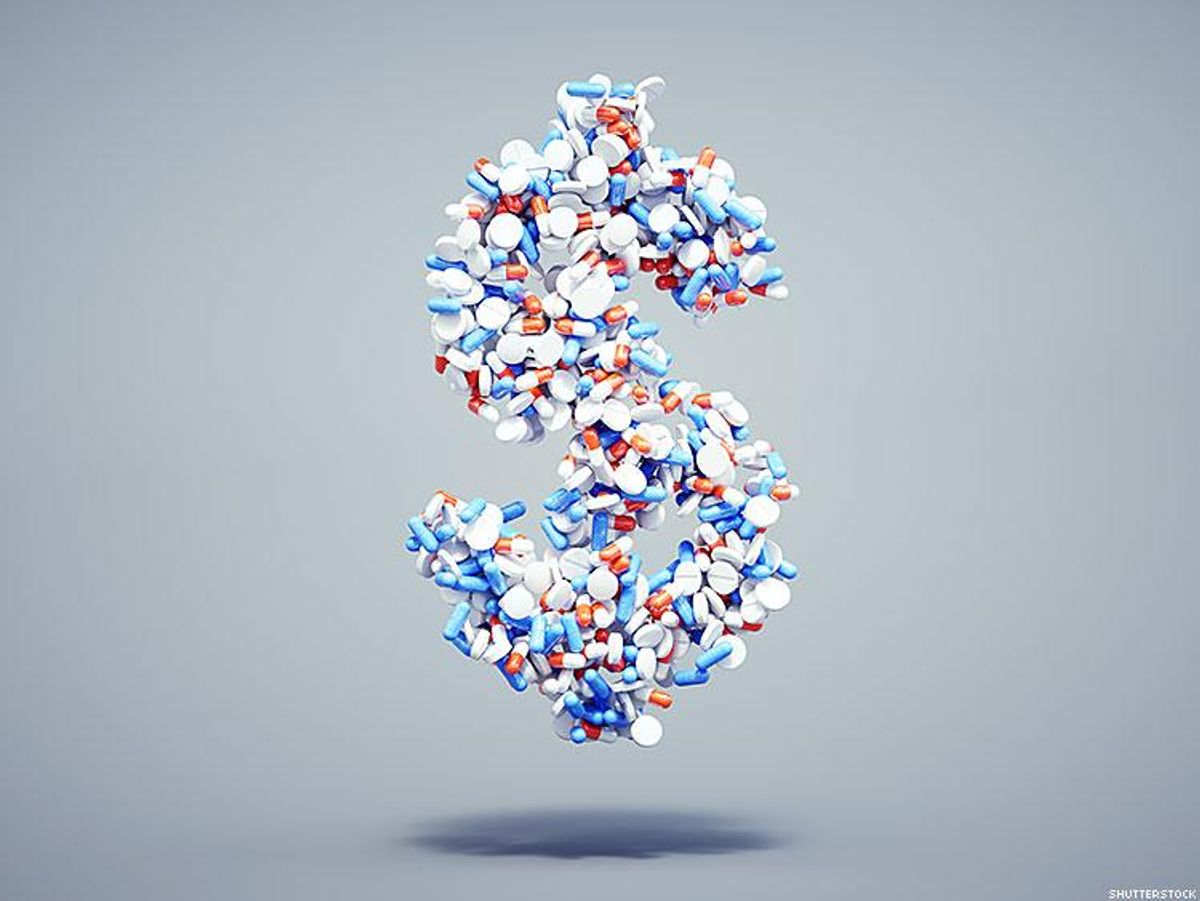Treatment
Can Buyer’s Clubs Help People Find Cheaper Meds — Legally?

Can the generic manufacturing boom — even if it's outside the U.S. — help Americans access drugs they couldn't otherwise afford?
November 18 2016 7:00 AM EST
By continuing to use our site, you agree to our Privacy Policy and Terms of Use.

Can the generic manufacturing boom — even if it's outside the U.S. — help Americans access drugs they couldn't otherwise afford?
Cost of drugs in this country continue to rise, at least in part, because of corporate greed. The pharmaceutical industry is a business, and it's a profitable one, with prescriptions for some newer medications (especially curative biologics) costing tens of thousands of dollars for a six-week dosage. Fears over President-elect Trump gutting the Affordable Care Act have even more of us researching alternative avenues for reducing prescription costs. It’s no wonder online buyer’s clubs seem a tantalizing option for those who can’t afford to otherwise get life saving medicines.
Turns out, many of these buyer’s clubs selling generic versions of high dollar medications are actually legitimate — and legal! Thousands of people living with HIV, hep C, or seeking PrEP, have turned to online or international buyer’s clubs registered in countries like India, whose laws do not award drug companies patents for minor improvements to existing drugs. India's drug manufacturing companies, like Cipla, Emcure, and Mylan have set the goal to develop and manufacture a broad range of pharmaceutical products for people around the world in need of high quality and affordable medication.
Meanwhile, the U.S. pharmaceutical industry has been pushing to tighten patent and intellectual property laws (that was one of the most disconcerting elements of the TransPacific Partnership treaty), which could make it harder to legally sell generic versions of the medications.
Buying generic drugs online can be risky (as we've reported, counterfeit or even dangerous substances have been found being passed off as generics), but faced with dramatic differences in cost, many feel they don't have a choice. At least we know that when we're talking generic (versus counterfeit) versions of drugs, the research has shown that they are just as effective and include the same formulation, so the only differenece really is the name on the bottle.
For example, sofosbuvir, released in 2013 by Gilead (as Sovaldi), is an effective cure for hepatitis C. As CNN Money reports, a 12-week course can cost nearly $84,000 — and doctors will often prescribe it as a combination with other drugs, which raises the price even further. Sofosbuvir accounted for two-thirds of Gilead’s $32.3 billion in sales last year. Clearly it’s a money maker for the company, which is probably why the they have been eager to protect its drug patent, but doing so can make it difficult for other companies to produce generic versions (because they have to wait for the patent to expire). Those patents aren't always enforcable across national boundaries (which is why pharma companies were pushing for patent protections to be included in the TPP treaty), so, for example, a company in India is currently selling a 12-week course of generic sofosbuvir for only $500.
To be fair, most people aren't paying that $84,000 out of pocket. Instead, the tab is being picked up by insurance companies, Medicare/Medicaid, Veteran Affairs, and sometimes, the pharma companies themselves through patient assistant programs (although much of that cost ends up a tax write-off). Gilead is actually one of the companies that has licensing agreements which enable generic drugmakers to supply affordable versions of lifesaving drugs to developing nations. Of course, these agreements specifically exclude selling those generics in the U.S. and other developed countries, but buyers clubs may provide a work-around, enabling you to access medications originally purchased in, say India, for a fraction of what they would cost here.
The World Trade Organization patent rules allow small-scale imports of medicines for personal use, Reuters reported. Because of this, online drug manufacturing companies like Cipla USA Inc, the U.S. subsidiary of Cipla Limited, can allow distribution of smaller scale drugs.
As Plus reported recently, London clinic 56 Dean Street tested drug levels in users taking generic PrEP bought online (Cipla’s Tenvir-EM, Emcure’s Tavin-EM, and Mylan’s Ricovir-EM), and compared the results with drug levels in those who took Truvada, the Food and Drug Administration approved drug supplied by Gilead. Research showed that users had an adequate level of the drug in their system to be a legitimate alternative.
Some countries, including Germany, won’t allow these medications to be sent through the mail, leading some to undertake what amounts to drug smuggling (like the PrEP "smuggling" Mark S. King reported on in South Africa this year). In America, there are also limits on what can be legally imported from India — whether it’s drugs or other produces. Sometimes buyers are lucky, other times buying online is prone to issues like medication confiscation depending on value and amount of drugs.
These issues have led some Americans to travel to India themselves to get the drugs firsthand. Greg Bigsby, a fisherman from Alaska, was one of them. After living with hepatitis C for over 40 years, Bigsby’s liver was so badly damaged that cirrhosis was inevitable. Upon reading a blog written by Greg Jefferys, an Australian with hep C who’d gone to India to buy generic sofosbuvir, he was inspired to contact one of the India-based buyer’s clubs.
In India Bigsby purchased sofosbuvir, in combination with other drugs, for $1600, reports CNN Money. A few months later, the hep C virus completely disappeared from his body; proving he'd indeed gotten the right medication and dosage.
As the ramifications of the Presidential elections continue to unfold, those dependent on Obamacare for their medications may need to find other affordable alternatives. We'll be watching to see if buyer's clubs become a viable option.